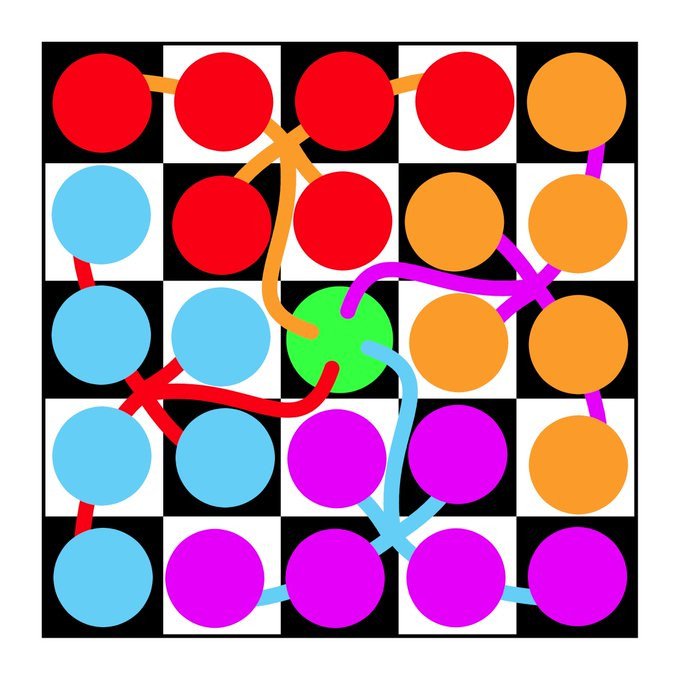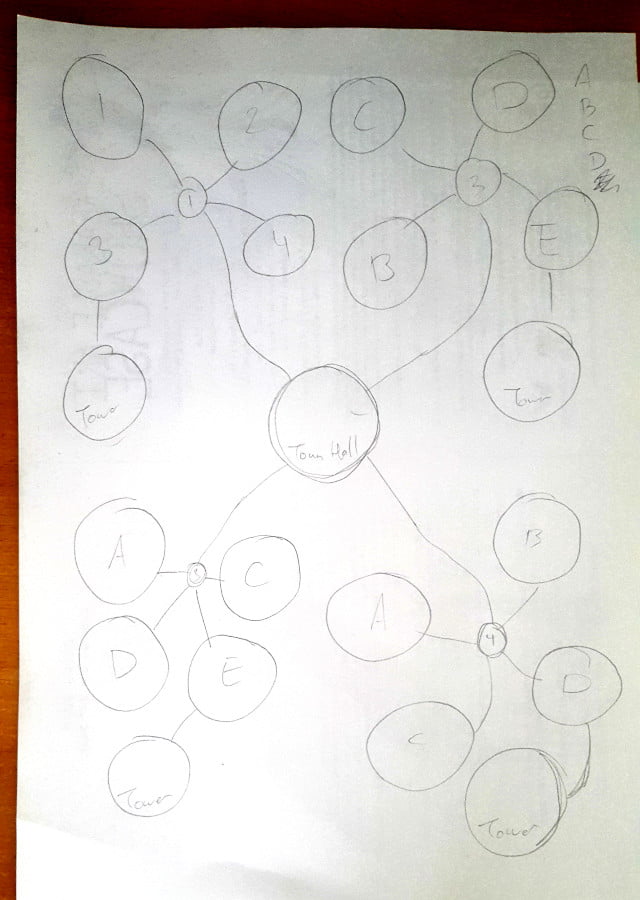Halfway through this month, I sat down with my supervisor and we discussed the idea of what this year is going to look like for the PhD. One of the things that we discussed was that large projects were slow and hard to move, and the material I had access to was harder to access thanks to the global shipping crisis. Services like Gamecrafter and DriveThruCards were unreliable, sometimes simply refusing to ship to Australia at all. Anyway, point is that I’m trying to make a print-and-play game each month this year.
But I decided this with ten days left in the month.
Hrm.
I was not going to get this done. Not properly done, not done in a way I’d be happy with. But I do have a game where the core idea of it is something I’ve been turning over and over in my head for years now in the idea of making a print-and-play game for the year.
Therefore, here, I am just going to provide an honest accounting of what I did, this month, to work on Adventure Town and how close it is to being complete.
Every month of 2022, I am trying, as part of both my PhD project and my all-purpose general game development, develop if not a whole game for game development, a project start, such that I can make playtest prototypes. This is a sort of report of the process throughout the month.
I’m writing this on the 28th, trying to make sure I give myself as much time as possible. I have three days after this goes up to maybe get it finished, but really, I don’t imagine that’s going to matter. What’s important now is uncorking the creative energy and just getting back into the habit of playing with ideas.
Fiction
The fiction presented by Adventure Town is that you are all like, influential business owners in a village near some important adventure site. You organise to make money during periods between adventurers travelling back and forth, build structures in the town those people will use when they come by, and reap rewards when they do. You aren’t bound to do this in a totally legal way, and you may in fact be totally scum.
Game Components
The game is composed of a set of dice, one for each player with some spares, a player sheet representing the town, and each player has their own player sheet, which folds up to give them privacy on what they’re using their effects for. There should be some currency counters, and a deck of playing cards for the gameplay deck. Players will also need pens.
All of these components are common and replicable except the player sheets, which should be designed to be black-and-white print-and-playable, or colour print-and-playable. In a hypothetical box release, these should be considered like yahtzee pads, and maybe players given screens to hide their earnings.
Gameplay Loop
Setup:
- Give each player a player sheet.
- Fold each sheet into thirds, so there’s a hidden panel and a public panel
- Set up the town in the centre of the table, putting that sheet where all players can look at it
- Set up a number of d6 dice equal to the number of players, plus one.
- Each player chooses a symbol, or letter, or number to represent their house. They’ll use this to mark squares in the town they claim.
- Take the starting deck of cards, with the face cards representing the adventurers, and the aces, shuffle it up and set it by the deck.
Play
- Stage one: Business
- The first player (determine however) rolls all the dice. They pick one dice to keep and one dice to exclude.
- Each other player takes one of the dice from that pool
- Players then mark off their sheets where they’re using that dice for.
- This repeats for each player, until everyone’s had a chance to be the player who rolls the dice.
- THen players account for how much money they got in that round. Some money is public (if obtained on the public sheet) and some is private
- Stage two: Building
- Each player, going around in order, spends money to build things or upgrade buildings around the town
- If a building has a card symbol on it, you add that card to the deck and shuffle it in
- If a building has two symbols on it, the player crosses out the symbol they don’t want
- Stage three: Adventurers
- Flip cards from the deck, until you reveal three cards; if there’s only one adventurer in this flip, keep flipping until you reveal a second adventurer
- This means you can sometimes have three adventurers show up, but never just one.
- The adventurers then go to any businesses in the town that they favour (have the symbols that they prefer). This causes all the owners of those towns to get ‘quest’ points.
- Then any Event cards take effect.
- This can include the taxman. Each player who has tax problems has to note the audit
- This can include Epic Quests that have been added to the deck
- This can include cult events, which will enable anyone doing cult progress
- Flip cards from the deck, until you reveal three cards; if there’s only one adventurer in this flip, keep flipping until you reveal a second adventurer
- Stage four: Check to see if anyone won
Concept Work
The biggest boundary holding me up was the design of the town, and how I wanted it to work aesthetically. With the tools I have (I am not good at DTP), the problem of designing the player boards and areas were mostly about ‘how do I fit it into a nice grid.’
This time around I did a set of diagrams, digitally and with pen and pencil:



Permutation
Some systems that emerged from this design:
- The adventurer cards and event cards allow for the game to get really interesting. It could be that there’s a major quest, and you’re encouraging adventurers to pass through so that they solve it for you. You may need to post rewards for the quest components, represented by other cards.
- The thief guild and cult options present ways that secretive players may be willing to risk a bad outcome to get ahead. Particularly, one event card is actually an adventurer that doesn’t do anything but instead triggers a ‘thieves’ auction,’ where players pool a sum of money based on how invested they are in the thieves’ guild – then the player with the most investment gets the majority of that money.
- Similarly, the paladin prevents a thieves’ auction from happening.
- At this point, I have no clear idea on what the signifiers are for each of the adventurers. There’s clearly something that a paladin, cleric, druid, fighter and barbarian can all want to do in town that isn’t just getting blind drunk. This will require more time to percolate on flavour permutations.
- The town construction needs to be similar enough in each ‘wing’ to make it so players don’t feel completely denied options if someone else snaps up something first, but not so similar that players just spread out. Neighbouring businesses may be a factor.
